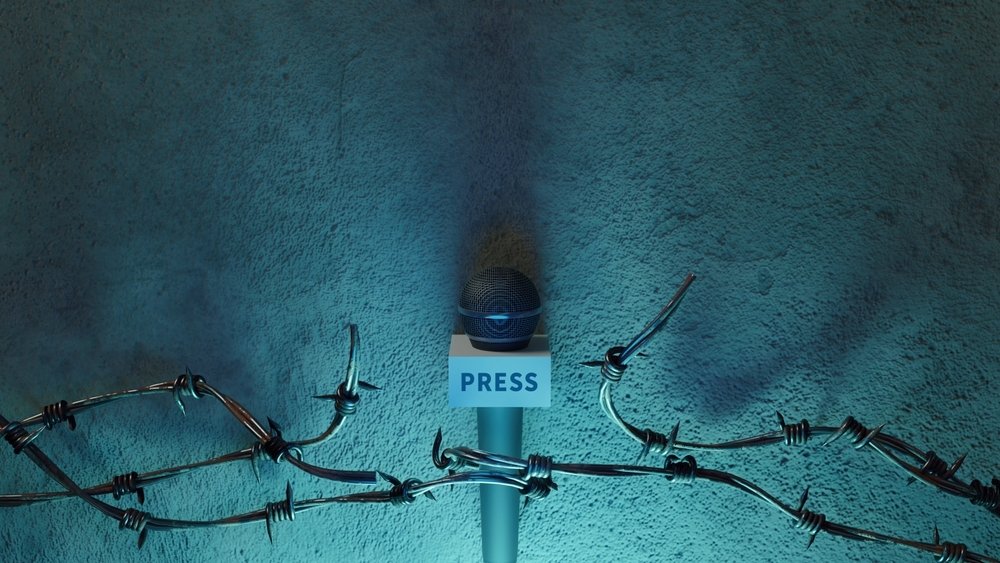
A blog of the Wilson Center
Press Freedom, Human Freedom

Shutterstock.com
320 journalists around the world were detained in 2023, and by year’s end more than 300 were imprisoned.
Thomas Jefferson once wrote, “Our liberty depends on the freedom of the press, and that cannot be limited without being lost." He would be anxious about what’s going on in many parts of the world these days.
Some governments, like Russia and China, attack press freedom in flagrant and brutal ways. Wall Street Journal reporter Evan Gershkovich was arrested by Russia’s Federal Security Service last spring on phony espionage charges and is languishing in detention. Radio Free Europe/Radio Liberty journalist Alsu Kurmesheva is facing the possibility of 15 years in prison for failing to register as a foreign agent after she dared to edit a book of essays by Russian writers who oppose the invasion of Ukraine. Her pre-trial detention was recently extended. Chinese authorities arrested and imprisoned Australian journalist Cheng Lei for three years after she broke a government-imposed news embargo by a matter of minutes. During her imprisonment she said she was isolated, deprived of sleep, and subjected to endless interrogation.
Other governments often attack journalists in less direct, but no less dangerous, ways.
Mexican President López Obrador, better known as AMLO, recently used a public address to share the phone number of New York Times reporter Natalie Kitroeff. He had her number because Kitroeff reached out for a Times investigation into his office’s ties to cartel leaders. According to the free speech group Article 19 and the Committee to Protect Journalists (CPJ), attacks against journalists have risen 85% during AMLO’s presidency. In 2021, if online threats and harassment are included, journalists were threatened on average once every 14 hours.
The erosion of press freedom in Mexico didn’t happen overnight. Article 19 found that attacks against journalists in the country increased by 163% from 2010 to 2016. CPJ reports that at least 141 journalists and media professionals were killed in Mexico since 2000, with more than 60 of those deaths directly attributable to their work. The country is home to the world’s highest number of “disappeared" journalists.
Around the world, there is little evidence that much will change soon. For example, in late March, the Hong Kong legislature unanimously passed a new national security law authorizing police to detain people suspected of sedition, divulging state secrets, or interacting with foreign entities without a charge, and with the ability to conduct closed-door trials. Concerns over the new law have led the independent news organization Radio Free Asia, which opened an office on the island just a year before it reverted to Chinese rule, to shutter its Hong Kong bureau. Radio Free Asia is counted among a growing list of media outlets that have folded under intense pressure from the island’s Chinese authorities.
As we approach World Press Freedom Day, threats to independent journalism are on the rise. While the number of imprisoned journalists has steadily increased since the late 90s, in 2023 alone, 320 journalists were detained and more journalists and media workers were killed for their work than ever before. As of this writing, more than 60 journalists are documented as missing.
In the words of George Orwell: "Freedom of the press, if it means anything at all, means the freedom to criticize and oppose." In modern times, technology is creating more ways for citizens and civil society to hold their government accountable. At the same time, government leaders seem less and less hesitant about trying to shut that accountability down.
Katherine Schauer helped to research and draft this blog.
About the Author














